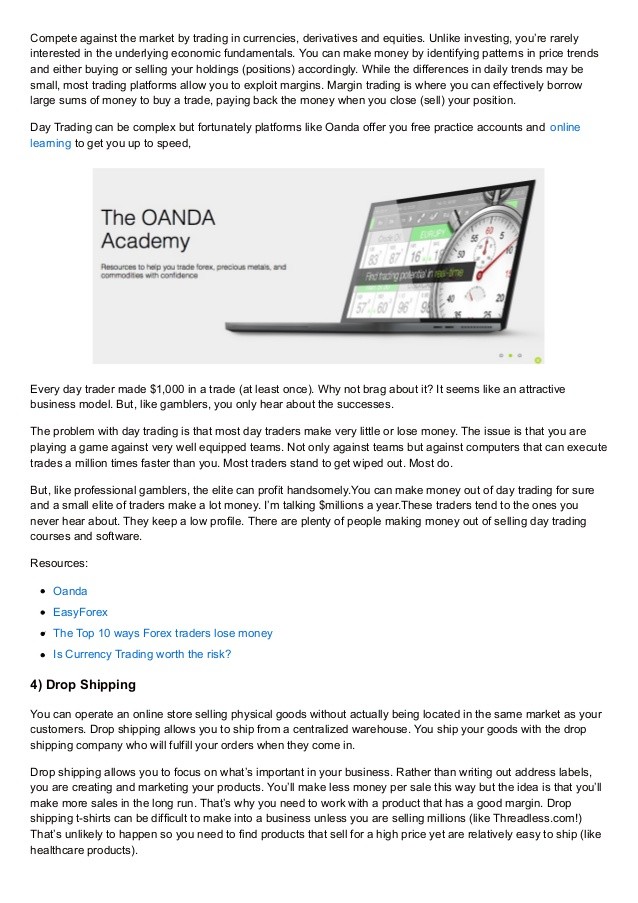The Roles Of Traders And Investors In The Marketplace Yahoo She Philippines
Post on: 13 Июнь, 2015 No Comment

Many people use the words trading and investing interchangeably when, in reality, they are two very different activities. While both traders and investors participate in the same marketplace, they perform two very different tasks using very different strategies. Both of these parties are necessary, however, for the market to function smoothly. This article will take a look at both parties and the strategies that they use to make a profit in the marketplace.
What Is an Investor?
An investor is the market participant that the general public most often associates with the stock market. Investors are those who purchase shares of a company for the long term with the belief that the company has strong future prospects. Investors typically concern themselves with two things:
- Value — Investors must consider whether a companys shares represent a good value. For example, if two similar companies are trading at different earnings multiples, the lower one might be the better value because it suggests that the investor will need to pay less for $1 of earnings when investing in Company A relative to what would be needed to gain exposure to $1 of earnings in Company B.
Both of these factors can be determined through the analysis of the companys financial statements along with a look at industry trends that may define future growth prospects. At a basic level, investors can measure the current value of a company relative to its future growth possibilities by looking at metrics such as the PEG ratio — that is, the companys P/E (value) to growth (success) ratio.
Who Are the Major Investors?
There are many different investors that are active in the marketplace. In fact, the vast majority of the money that is at work in the markets belongs to investors (not to be confused with the amount of dollars traded per day, which is a record held by the traders). Major investors include:
- Investment Banks — Investment banks are the organizations that assist companies in going public and raising money. This often involves holding at least a portion of the securities over the long term.
All of these parties are looking to hold positions for the long term in an effort to stick with the company while continuing to be successful. Warren Buffetts success is a testament to the viability of this strategy.
What Is a Trader?
Traders are market participants who purchase shares in a company with a focus on the market itself rather than the companys fundamentals. Markets that trade commodities lend themselves well to traders. After all, very few people purchase wheat because of its fundamental quality — they do so to take advantage of small price movements that occur as a result of supply and demand. Traders typically concern themselves with:
Ultimately, it is traders that provide the liquidity for investors and always take the other end of their trades. Whether it is through market making or fading, traders are a necessary part of the marketplace.
Who Are the Major Traders?
When it comes to volume, traders have investors beat by a long shot. There are many different types of traders that can trade as often as every few seconds. Among the most popular types of traders are:
- Investment Banks — The shares that are not kept for long-term investment are sold. During the initial public offering process, investment banks are responsible for selling the companys stock in the open market through trading.
The Bottom Line
Clearly, both traders and investors are necessary in order for a market to function properly. Without traders, investors would have no liquidity through which to buy and sell shares. Without investors, traders would have no basis from which to buy and sell. Combined, the two groups form the financial markets as we know them today.
More From Investopedia














